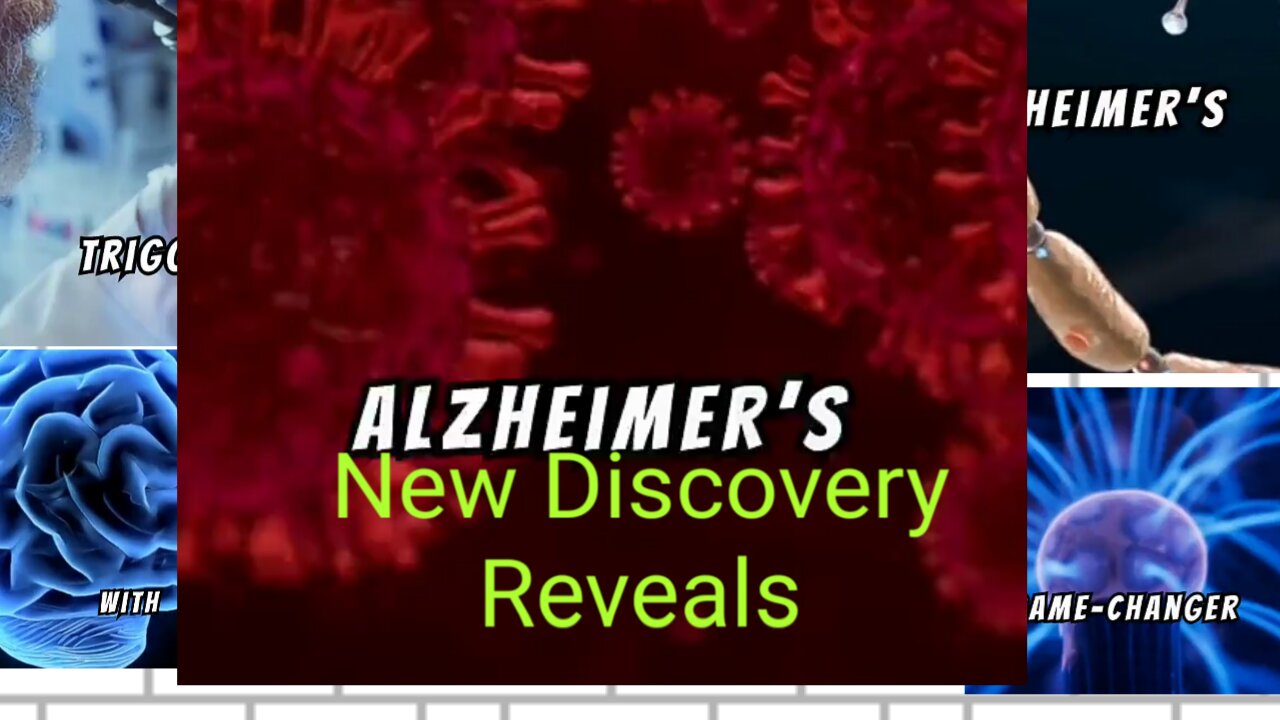Premium Only Content

Link Between Cold Sore Herpes Virus and Alzheimer's Disease explained
Groundbreaking Study Reveals Link Between Cold Sore Herpes Virus and Alzheimer's Disease
A revolutionary discovery has been made in the field of neurology, uncovering a surprising connection between the herpes simplex virus-1 (HSV-1), commonly known for causing cold sores, and Alzheimer's disease. This breakthrough research suggests that viral infections may play a significant role in the development of neurodegenerative diseases.
*The Complex Relationship Between HSV-1 and Tau Protein*
At the heart of this discovery lies the tau protein, a molecule typically associated with the harmful effects of Alzheimer's disease. However, the study reveals that tau protein may initially serve as a protective mechanism against HSV-1 infection in the brain. Over time, though, this protection may turn detrimental, exacerbating the damage associated with Alzheimer's.
*Viral Proteins and Tau Tangles: A Spatial Connection*
Further evidence of the link between HSV-1 and Alzheimer's comes from the observation of HSV-1 viral proteins in close proximity to tau tangles within brain regions affected by Alzheimer's. This spatial connection underscores the complex interplay between viral infection, immune response, and neurodegeneration.
*Implications for Future Therapies*
The findings of this study open up new avenues for the development of therapies aimed at targeting viral proteins or modulating immune responses to slow the progression of Alzheimer's disease. This represents a significant shift in the approach to combating Alzheimer's, highlighting the potential benefits of addressing viral infections as part of the treatment strategy.
*Key Takeaways*
- *HSV-1 Infection and Tau Protein*: HSV-1 influences tau protein levels, initially protecting neurons but later contributing to damage.
- *Spatial Connection*: HSV-1 viral proteins are found near tau tangles in Alzheimer's-affected brain regions.
- *Therapeutic Implications*: Targeting viral proteins or immune responses may offer new strategies to combat Alzheimer's.
This groundbreaking research illuminates a previously unknown aspect of Alzheimer's disease, offering hope for the development of innovative treatments that could improve the lives of millions affected by this devastating condition.
-
 13:14
13:14
Michael Button
23 hours ago $0.92 earnedThere’s a Giant Hole in Human History
3.24K5 -
 9:23
9:23
Russell Brand
19 hours agoThe TRUTH Behind Stephen Colbert's Downfall
44.4K69 -
 17:47
17:47
T-SPLY
1 day agoDems Fume: L.A Protesters Clash With Federal Agents And National Guard...Again!
3.77K10 -
 LIVE
LIVE
Lofi Girl
2 years agolofi hip hop radio 📚 - beats to relax/study to
648 watching -
 22:50
22:50
marcushouse
1 day ago $0.38 earnedStarship Tech Update Reveal, and Fire Time Already!? 🔥
3.47K4 -
 53:17
53:17
The Car Guy Online
20 hours ago $0.55 earnedNextGen Engineer Reveals How GM Is Quietly Fixing 10-Speed Problems.
5.09K -
 1:26:10
1:26:10
Squaring The Circle, A Randall Carlson Podcast
22 hours ago#057 What REALLY Happened During The Younger Dryas - Squaring The Circle
4.75K2 -
 14:53
14:53
Degenerate Jay
1 day agoThe Henry Cavill Superman Return - James Gunn Was Blindsided?
2.15K2 -
 9:02
9:02
Freedom Frontline
1 day agoTucker Carlson Just EXPOSED Why You’ll Never Own a Home Again
1.47K -
 1:01:28
1:01:28
Wendy Bell Radio
4 hours agoWeekends With Wendy
30K41